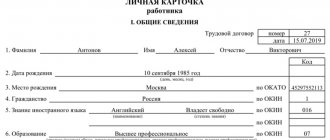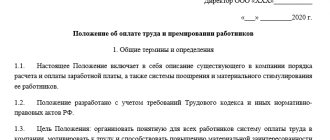New edition of Art. 153 Labor Code of the Russian Federation
Work on a weekend or a non-working holiday is paid at least double the amount:
for piece workers - no less than double piece rates;
employees whose work is paid at daily and hourly tariff rates - in the amount of at least double the daily or hourly tariff rate;
for employees receiving a salary (official salary) - in the amount of at least a single daily or hourly rate (part of the salary (official salary) for a day or hour of work) in excess of the salary (official salary), if work on a day off or a non-working holiday was carried out within monthly standard working time, and in an amount of at least double the daily or hourly rate (part of the salary (official salary) for a day or hour of work) in excess of the salary (official salary), if the work was performed in excess of the monthly standard working time.
Specific amounts of payment for work on a day off or a non-working holiday may be established by a collective agreement, a local regulatory act adopted taking into account the opinion of the representative body of employees, or an employment contract.
Increased payment is made to all employees for hours actually worked on a weekend or non-working holiday. If part of the working day (shift) falls on a weekend or non-working holiday, the hours actually worked on the weekend or non-working holiday (from 0 hours to 24 hours) are paid at an increased rate.
At the request of an employee who worked on a day off or a non-working holiday, he may be given another day of rest. In this case, work on a weekend or a non-working holiday is paid in a single amount, and a day of rest is not subject to payment.
Remuneration for work on weekends and non-working holidays of creative workers of the media, cinematography organizations, television and video crews, theaters, theatrical and concert organizations, circuses and other persons involved in the creation and (or) performance (exhibition) of works, in accordance with lists of jobs, professions, positions of these workers, approved by the Government of the Russian Federation, taking into account the opinion of the Russian Tripartite Commission for the Regulation of Social and Labor Relations, can be determined on the basis of a collective agreement, a local regulatory act, or an employment contract.
How to calculate salaries in April during the period of self-isolation
The President of Russia declared the entire month of April non-working due to the outbreak of the coronavirus epidemic. In this regard, accountants have a question about how to calculate wages for April. Vladimir Putin, in his address to the nation, clearly said that wages for April will remain the same.
Option #1. Time-based wage system
For everyone who works for a salary or for a tariff rate, wages will remain in full, regardless of whether the subordinate worked or observed self-isolation at home. The presence of non-working days in April 2020 is not a reason for reducing wages.
The Ministry of Labor recommended that employers introduce a new designation for non-working days due to self-isolation in the time sheet. The new value should be approved by a separate order.
Option #2. Piece wages
If piece-rate workers are sent into self-isolation, and the entire month of April is non-working for them, then wages will still have to be paid. Such specialists are entitled to remuneration, the amount and procedure for calculating it is determined by the local act of the employer.
Option #3. For those who continue to work
If the employer is one of the institutions that were allowed to work in April, then calculate the employees’ salaries in the standard manner. Non-working days do not include weekends or holidays, therefore increased payment is not due for work in April. Of course, if the employee is not brought in on his day off. For example, on Saturday, Sunday or another day - a scheduled day off.
Option number 4. What to do with vacation
If an employee has a vacation and a period of self-isolation at the same time, then do not count non-working days in the duration of the vacation. Vacations on non-working days are not extended. Such clarifications were given by the Ministry of Labor in Letter dated March 26, 2020 No. 14-4/10/P-2696.
New rules for paying for holidays
The Constitutional Court of Russia published Decision No. 17-P of 04/11/2019, which finally approved that irregular payments for work in non-standard conditions cannot be included in the minimum wage. What would that mean? Now calculate your salary in a new way. The changes affected workers receiving minimum wage.
When calculating wages to an employee, the accountant is obliged to compare the level of earnings for the period worked with the minimum wage. For fully worked time at full time, the employee will receive payment no less than the minimum amount. In 2020, the minimum wage is 12,130 rubles. If the accruals are below the established minimum, then the employee is given an additional payment up to the minimum wage.
How did the decision of the Constitutional Court of the Russian Federation affect the rules for calculating wages? Judicial representatives decided that additional payments for work in non-standard conditions cannot be taken into account when comparing earnings with the minimum wage. That is, when calculating the minimum wage, do not include:
- additional payment for work on holidays and weekends;
- allowances for night work;
- overtime work.
Now there will be no disputes over the issue of whether payment for holidays is included in the minimum wage. The decision of the Constitutional Court of Russia dated April 11, 2019 clearly established that payments for work on holidays and weekends, as well as night work and overtime, cannot be taken into account in the minimum wage. Consequently, such allowances must be calculated above the minimum wage.
Calendar for 2020
Let's determine on which days double pay in 2020 is due to all workers. These are official holidays, which are named in Art. 112 Labor Code of the Russian Federation:
If an employee is hired to work on these days, then an increased bonus is guaranteed by the Labor Code.
There is also increased pay for work on weekends. Weekends are considered to be those days on which the employee is required to rest according to the work schedule. For example, for those working on a five-day shift, Saturday and Sunday are considered days off. For a six-day work week, the only day off is Sunday. For a shift schedule, days off are set on an individual basis.
But in any case, if an employee is hired to work outside of working hours, he is entitled to increased pay or single pay and additional rest time.
Conditions for employment on weekends
Resourceful leaders use a variety of tricks. For example, local circulars are being developed obliging workers to work hard at the discretion of the administration. However, internal regulations should not contradict federal law.
If this is practiced at an enterprise, the employee’s direct route is to the labor inspectorate, and then to the court.
The Labor Code prohibits working on weekends and public holidays on the basis of Art. 113. An exception is made for production circumstances established by law. These are sudden situations that directly affect the functioning of the organization and the enterprise’s performance of its tasks.
It is also allowed to:
- processes that cannot be stopped due to the nature of the technology;
- emergency repair activities.
An indispensable condition for unplanned work is the written approval of the applicant. If the organization has a trade union, work on weekends and holidays will require approval from this structure.
Creative workers
This area is initially subject to special conditions. However, the norms of the Labor Code also apply to representatives of creative professions:
- representatives of the media, filmmakers, video studios;
- concert, theater and circus associations;
- associations for exhibiting art objects.
The work schedule of “creators” is regulated by agreements and local regulations. The position of the Russian Tripartite Commission on Social and Labor Relations is certainly taken into account.
Special categories of workers
We are talking about workers raising children under 3 years old, citizens with disabilities of any group. When a medical order does not permit work as scheduled, substitution of rest for work may be considered. However, “special” employees are notified, upon signature, of the right to ignore management’s proposal.
For minor workers 14-18 years old and pregnant women, a complete ban on work on weekends/holidays and other off-hour work has been introduced.
List of sources
- spmag.ru
- tkrf24.ru
- pravo.team
- FreeLawyer.guru
How to apply for holiday supplements
It is possible to attract an employee to work at non-standard hours, but only with his consent. The employer is obliged to comply with this requirement of the Labor Code of the Russian Federation. Otherwise, punishment from the State Tax Inspectorate cannot be avoided.
IMPORTANT!
Underage workers and pregnant women must not be assigned to additional work under any circumstances.
Consent can be obtained in different ways. For example:
- send a notice offering to work on a weekend or holiday;
- request a free-form statement from a subordinate stating that he agrees to work on a day off;
- In the structure of the order, provide separate columns for the employee to review and sign.
IMPORTANT!
Employees have the right to replace increased pay with additional rest time. For example, request time off for holiday work. Then double payment will not be charged. Work on a weekend or holiday will be paid as standard and will be provided with paid time off.
Note to the employer. Receive an application for time off no later than the last working day of the month in which the employee was involved in “non-standard” work. If the application is submitted later, the inspectors from the State Tax Inspectorate will have questions.
Sample order
Registration of extracurricular work
The administration must warn the specialist of the intention to call him on the day of rest. The Labor Code did not resolve this issue. Therefore, the employer, at his own discretion, chooses the method of informing - possibly even oral notification.
However, in practice, written notice is often used. The procedure for using this form requires the following to be indicated in the document:
- the exact date of recruitment;
- period of work by time;
- reasons for unscheduled work;
- compensation options.
The employee signs his consent. At the same time, the preferred form of compensation can be expressed. Now the company issues a corresponding order.
What an employee should check The order is an internal regulatory act with certain legal consequences. As soon as the subject puts a mark in the order about his notification with the content, he accepts the conditions put forward. Carefully read the papers that the employer asks you to sign.
Contents of the order
At the legislative level, there are no strict requirements for the form of the order. Therefore, practical developments and internal standards of the enterprise are used. As a rule, the order contains:
- accounting details: date of compilation, registration number;
- data of the employee in respect of whom the document is valid;
- the essence of the order (by analogy with a written notice);
- position of the head of the enterprise with a personal facsimile and the seal of the organization.
If you disagree with the terms, you must submit written reasons. Often, the administration of an enterprise issues an order without prior notice to employees. Then, in case of disagreement with an unscheduled entry into service, either the document is not endorsed, or a written refusal is written in two copies.
How to calculate bonuses
Let's figure out how to correctly calculate payment on a day off. Each remuneration system has special rules. But there is one rule, the same for everyone. This is a guarantee of additional rest. Check with your subordinate whether he wants to receive time off or a double bonus. If you need a vacation, then accrue a holiday payment in a single amount. If time off is not needed, then consider the following recommendations:
- for piece workers - no less than double the piece rate;
- at an hourly rate - no less than double the hourly rate;
- on a daily tariff - no less than double daily tariff;
- wages on holidays with a salary are calculated at no less than double the employee’s daily or hourly salary.
IMPORTANT!
When calculating bonuses, take into account not only the official salary or tariff rate, but also all types of incentive and compensatory additional payments. For example, if an employee receives additional payment for length of service, then also include this payment in the calculation.
The following commentary to Article 113 of the Labor Code of the Russian Federation
If you have questions regarding Art. 113 of the Labor Code, you can get legal advice.
1. Establishing a ban on attracting employees to work on weekends and non-working holidays, the commented article contains lists of circumstances that allow the employer to attract employees to work on such days, and regulates the procedure for attracting them to work.
2. The procedure for attracting employees to work on non-working days provided for in the commented article applies both to non-working weekends and holidays established by federal law, and to weekends established by the collective agreement and internal labor regulations, shift schedules. The procedure for attracting employees to work on weekends and non-working holidays depends on the nature of the circumstances requiring the involvement of employees in such work.
3. In the event of a state of emergency or martial law, the occurrence of a disaster or threat of a disaster, in other cases threatening the life or normal living conditions of the entire population or part of it, and in other cases specified in part 3 of the commented article, the involvement of workers in work on weekends and non-working holidays is allowed without their consent. The list of such cases is exhaustive.
4. If there is a need to carry out unforeseen work, on the urgent implementation of which the further normal work of the organization or its structural divisions, or an individual entrepreneur depends, employees may be involved in work on weekends and non-working holidays only with their written consent.
5. In other cases, in order to be hired to work on weekends and non-working holidays, along with the employee’s written consent, the employer also requires the employer to take into account the opinion of the elected body of the primary trade union organization (on the procedure for taking into account the opinion of the elected body of the primary trade union organization in cases where the employer’s decision does not require the adoption of a local normative act, see Articles 99, 371 of the Labor Code and commentary thereto).
6. Work in continuously operating organizations is carried out according to schedules and does not require compliance with the specified procedure. At the same time, these works should be fully covered by the guarantees provided to certain categories of workers (see paragraphs 7 and 8 of the commentary to this article).
7. It is prohibited to hire pregnant women and workers under the age of 18 to work on weekends and non-working holidays, with the exception of creative workers and professional athletes under the age of 18, types of work, professions, positions of which are indicated in the relevant lists (see Art. ... Articles 259, 268, 348.8 of the Labor Code and commentary thereto).
8. Disabled people and women with children under three years of age may be involved in work on a weekend or a non-working holiday only with their written consent and provided that such work is not prohibited for them for health reasons in accordance with a medical certificate. In relation to such employees, along with this procedure for engaging them to work on a day off or a non-working holiday, an additional requirement must be observed: the employer is obliged to familiarize them, upon signature, with the right to refuse work on a day off or a non-working holiday.
These guarantees also apply to mothers and fathers raising children under the age of five without a spouse; workers with disabled children; workers caring for sick members of their families in accordance with a medical report, and for guardians (trustees) of minors (see Articles 259, 264 of the Labor Code and commentary thereto).
9. Work on weekends and non-working holidays is paid at least double the amount. At the request of an employee who worked on a day off or a non-working holiday, he may be given another day of rest. In this case, work on a non-working holiday is paid in a single amount, and a day of rest is not subject to payment (see Article 153 of the Labor Code and the commentary thereto).
Example of salary calculation
Morkovkin I.P.’s salary is 20,000 rubles. Additional payment for length of service - 20% of salary. Stimulants - 40% of the DO. In January, he was involved in work from the 1st to the 5th. The region has a regional increasing coefficient of 15%.
Let's do the calculation:
- We calculate the cost of one day of work in January: (20,000 + 4,000 (20% experience) + 8,000 (40% incentive)) / 17 working days = 1,882.35 rubles.
- We calculate the additional payment for holidays: RUB 1,882.35. × 2 times the size × 5 days = 18,823.50 rubles.
- We calculate the regional coefficient: 18,823.50 × 115% = 21,647.03 rubles.
IMPORTANT!
Withhold personal income tax from the amount paid for work on a holiday and calculate insurance premiums.










